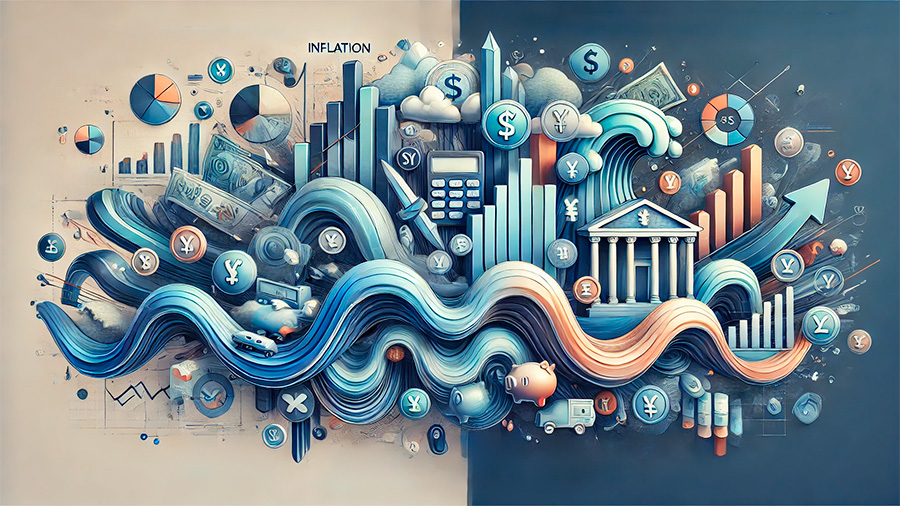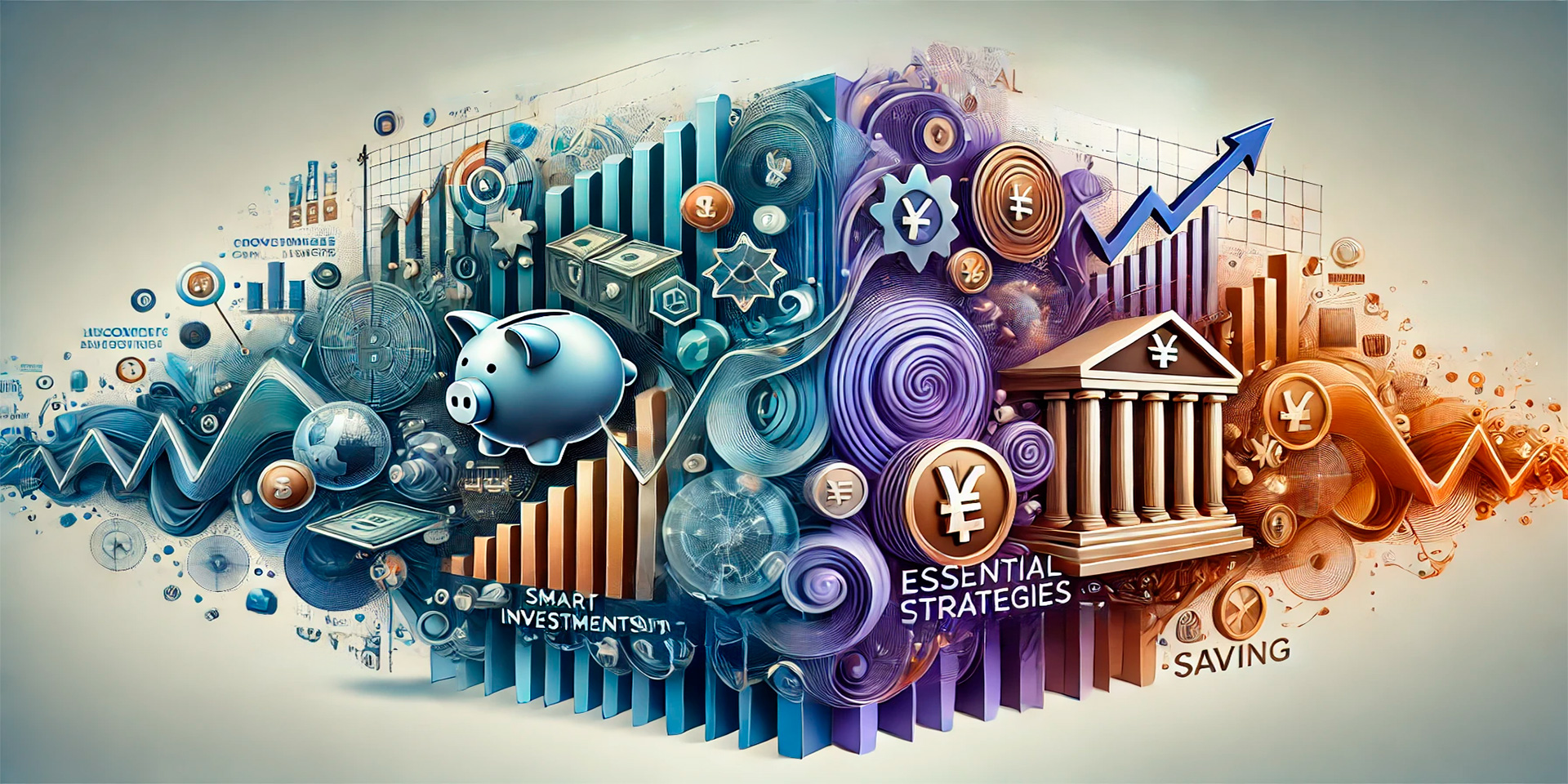Economic crises are disruptive events that can significantly impact the financial stability of individuals and economies. One of the most immediate effects of such crises is the erosion of purchasing power—the ability to buy goods and services with a given amount of money. As prices rise and wages stagnate, people find that their income buys less than it used to, making it harder to maintain their standard of living. This article explores how economic crises erode purchasing power and provides actionable steps you can take to protect your financial standing during difficult times.
Understanding Purchasing Power and Inflation
Purchasing power refers to the value of a currency in terms of the amount of goods and services it can buy. When purchasing power declines, the same amount of money buys fewer items than before. Economic crises often lead to a reduction in purchasing power, primarily due to inflation, which is the general increase in the price level of goods and services.
The Role of Inflation in Eroding Purchasing Power
During an economic crisis, inflation can rise for several reasons. Governments may increase the money supply to stimulate the economy, leading to an oversupply of currency and diminishing its value. Additionally, supply chain disruptions, increased demand for essential goods, or shortages can drive up prices. When inflation outpaces wage growth, individuals experience a loss of purchasing power, as their income no longer stretches as far as it once did.
For example, if inflation rises by 5% while your income remains the same, the purchasing power of your salary effectively decreases by 5%, meaning you can buy fewer groceries, pay for fewer services, or save less for the future.
How Economic Crises Impact Wages and Employment
In addition to rising prices, economic crises often lead to stagnant wages or even job losses, further reducing purchasing power. When businesses struggle during a crisis, they may freeze wages, cut hours, or lay off workers to reduce costs. This can create a vicious cycle where individuals have less income to spend, which in turn leads to lower demand for goods and services, exacerbating the economic downturn.
Wage Stagnation and Reduced Spending Power
Even if inflation is moderate, stagnant wages can erode purchasing power over time. If your salary does not keep pace with the rising cost of living, your ability to afford basic necessities like housing, healthcare, and food diminishes. Many workers face wage stagnation during economic crises, as companies become more cautious about increasing payroll costs. In such situations, employees must find ways to stretch their income or seek additional sources of income to maintain their standard of living.
Job Loss and Economic Insecurity
Job loss is a common consequence of economic crises. High unemployment rates reduce household income and make it difficult for individuals to keep up with bills, rent, or mortgage payments. Without a stable source of income, purchasing power is directly affected, forcing individuals to cut back on spending, sometimes on essential items. Even for those who remain employed, the fear of job loss can lead to more conservative spending behavior, further contributing to the reduction in demand within the economy.

Strategies to Protect Your Purchasing Power
While economic crises can have a significant impact on purchasing power, there are steps you can take to protect your financial position and navigate tough times more effectively. By managing your finances carefully and making strategic decisions, you can mitigate the effects of a crisis and preserve your purchasing power as much as possible.
Create a Budget and Cut Unnecessary Expenses
The first step in protecting your purchasing power during an economic crisis is to take control of your spending. Creating a detailed budget can help you identify areas where you can reduce or eliminate unnecessary expenses. Focus on prioritizing essential costs such as housing, utilities, food, and healthcare, while cutting back on discretionary spending like entertainment, dining out, or non-essential purchases.
By cutting unnecessary expenses, you can stretch your income further and ensure that you have enough to cover basic needs, even as inflation erodes purchasing power.
Build an Emergency Fund
An emergency fund is a critical tool for maintaining financial stability during an economic crisis. Having a reserve of savings can help you cover unexpected expenses, such as medical bills or car repairs, without having to rely on credit cards or loans. Ideally, your emergency fund should cover at least three to six months’ worth of living expenses.
If you haven’t already built an emergency fund, start by setting aside a portion of your income each month. Even small contributions can add up over time and provide a financial cushion during periods of uncertainty.
Seek Additional Sources of Income
In times of wage stagnation or job loss, finding additional sources of income can help preserve your purchasing power. This could involve taking on a part-time job, freelancing, or starting a side business. Diversifying your income streams can provide more financial stability and reduce your reliance on a single employer or source of income, especially during an economic downturn.
While finding new opportunities may be challenging during a crisis, exploring industries or sectors that are in demand—such as e-commerce, digital services, or healthcare—can help you generate extra income.
Invest in Inflation-Protected Assets
Investing in assets that offer protection against inflation can help preserve your wealth and purchasing power over the long term. Inflation-protected securities, such as Treasury Inflation-Protected Securities (TIPS), are designed to rise in value with inflation, offering a hedge against the erosion of purchasing power. Additionally, commodities like gold, real estate, or stocks in companies that can pass on higher costs to consumers may provide returns that outpace inflation.
While all investments carry risks, diversifying your portfolio and considering inflation-resistant options can help shield your savings from the negative effects of inflation during an economic crisis.

Stay Informed and Adapt to Economic Conditions
One of the best ways to protect your purchasing power during an economic crisis is to stay informed about current economic conditions and policy changes. Understanding how inflation, interest rates, and government interventions affect the economy can help you make smarter financial decisions.
Monitor Inflation Rates and Consumer Prices
Keeping an eye on inflation rates and the prices of essential goods can help you anticipate changes in your purchasing power. If inflation is rising rapidly, you may need to adjust your budget or consider investing in inflation-protected assets to prevent further erosion of your financial position.
Take Advantage of Government Assistance Programs
During economic crises, governments often implement assistance programs to support individuals and businesses. These programs may include unemployment benefits, tax relief, stimulus payments, or food assistance. If you’re facing financial difficulties, be sure to explore available government programs and take advantage of any resources that can help you weather the crisis.
By staying informed about these programs and acting quickly, you can ease the financial strain and protect your purchasing power during tough times.
Long-Term Strategies for Financial Resilience
While short-term actions can help you navigate the immediate effects of an economic crisis, it’s also important to implement long-term strategies to build financial resilience and safeguard your purchasing power for the future.
Invest in Skill Development and Education
Investing in your skills and education can improve your long-term earning potential and make you more competitive in the job market, even during economic downturns. By acquiring new qualifications, certifications, or skills in high-demand fields, you can increase your chances of finding stable employment or advancing in your career.
Continuing education and skill development can also position you to take advantage of opportunities in emerging industries, ensuring that your income keeps pace with inflation and economic changes over time.
Reduce and Manage Debt
Managing debt is crucial for maintaining financial stability during and after an economic crisis. High levels of debt, especially variable-rate debt such as credit cards, can become more difficult to manage if interest rates rise during a crisis. Paying down high-interest debt and consolidating loans can help you reduce monthly payments and free up more of your income for essential expenses.
By reducing your debt load, you’ll be better positioned to weather future economic crises without the added burden of high-interest payments eating into your purchasing power.
Conclusion: Protecting Your Financial Standing During Economic Crises
Economic crises can erode purchasing power, making it harder to maintain your standard of living. By understanding how inflation, wage stagnation, and unemployment affect your finances, you can take proactive steps to protect your financial standing. Creating a budget, building an emergency fund, seeking additional income, and investing in inflation-protected assets are all essential strategies for navigating tough times.
In the long term, focusing on skill development, reducing debt, and staying informed about economic trends will help you maintain financial resilience and safeguard your purchasing power in the face of future economic challenges.




